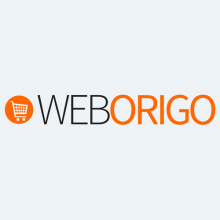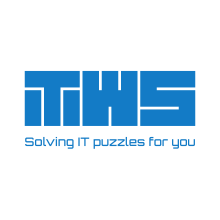
There are 75 Companies in Estonia
that provide NodeJS Development Services!
In the past 10 years, Estonia has developed its IT industry and infrastructure. Projects like e-Estonia, e-residency, and VR Estonia, among others, transformed the country into a fully digitalized hub in the Baltic region.
Discover Top IT Companies in Estonia specialized in NodeJS and other related services. Find the best IT service providers for your projects.
Node Js is a JavaScript runtime environment that allows developers to run JavaScript code on the server-side. Unlike traditional server-side technologies like PHP or Ruby, which are typically used for handling server tasks, Node.js enables developers to use JavaScript for both client-side and server-side development.
Handpicked companies • No obligation to hire • 100% risk-free
Featured Companies in Estonia
This month, the following NodeJS Development companies managed to provide an outstanding service and support. It's worth taking a look.
Explore Top NodeJS Development Companies in Estonia
We seed the right tech solution for your business.
★ Top Remote Software Developers | ☂ ISO 27001 Certified Tech Talent Provider | ◉ Trusted by Fortune 500 Companies | ✔ 10+ Years of Experience
Full-service unique software development solutions. We make businesses more efficient, secure and sustainable with our unique cloud-based softwares.
We design, build, and support scalable software systems with reliable delivery, clear processes, and strong engineering culture.
Full-Cycle Software Development Company
Hygge Software - Aligning Technology With Business Success.
We are about complex logic.
Custom websites & web apps, clean UI/UX, and AI-powered tools - delivered on time with transparent communication to grow your business.
Services:
Fresh Lime Soft (FLS) is an award-winning software development company located in Georgia and Estonia. We turn your idea into a market-ready product.
Software Tech Consultancy Reimagined
From concept to code, we deliver excellence with our dedicated teams
We are a top software development company, crafting innovative WEB, Mobile, AI/ML, and Blockchain solutions tailored to your business needs.
Filter NodeJS Development Companies in Estonia by Cities
Find the right tech company near you or from a specific city. Some of the best companies might be located in smaller cities.
Find more NodeJS Development companies around the world
TechBehemoths is the world's most advanced and user-friendly platform to match IT Companies with real clients without hustle.
The ICT in Estonia: Overview and Companies Data
In the past 10 years, Estonia has developed its IT industry and infrastructure. Projects like e-Estonia, e-residency, and VR Estonia, among others, transformed the country into a fully digitalized hub in the Baltic region.
The IT sector itself plays an important role in the Estonian economy, registering a $278,73 million turnover in 2025. Also, ~6.0% of the entire Estonian workforce is enrolled in the IT industry, for those 4800+ digital companies that export their services in 130 countries.
Why Work With Estonian IT Companies
Essential e-solutions in Estonia that enable the digital society to function smoothly were all built by local Estonian companies. This enhances the reliability of Estonian IT companies not only locally but also worldwide - about this, we will relate a bit later.
The already built digital system in Estonia already tells a lot about Estonian IT companies that perform excellently, and are becoming more and more attractive not only for companies but also for skilled professionals who are enjoying preferential conditions.
So, after all, why should you work with Estonian IT companies?!
- Skilled workers who provide high-level digital services.
- Open market - that facilitates and eases access to IT resources and companies' services.
- Low taxes - compared with other European countries, Estonia helps local IT and tech companies generate sales by cutting taxes, which can reflect a lower price/project for the end customer.
- Healthy business environment - a well-established communication between businesses is assured.
What You Should Pay Attention to When Working With Estonian It Companies
However, working with Estonian IT companies can also be tricky. Even though the post soviet reminiscences are not visible, you still can hit Russian Estonians that are providing the same IT services, but of a relatively lower quality, and in a very specific manner. Roughly, some of the companies are only benefiting from the developed IT environment in Estonia, but don’t follow the same guidelines as the vast majority of companies do.
Another challenge is the limited human resources that Estonian companies have. The country’s population is just above 1.3 million people, and 6% of it is simply not enough to cover all market demands, so it would be difficult to find an available IT company based in Estonia to take on a big project or so.
How Developed is the Estonian IT infrastructure
Estonia ranks among the top European countries with the highest IT infrastructure. As mentioned previously, its digital transformation made the country one of the regional innovation leaders. But even so, the country is still not done yet with developing its IT capabilities.
How Does the Estonian IT Industry Perform Compared to the Neighboring Countries?
In the Baltics, Estonia is a detached leader in IT. Latvia and Lithuania are behind simply because they have focused on developing other sectors. But the Estonian performance is also motivated by people’s attachment to digital technologies. The continuously growing number of digital agencies confirms once again that Estonia ranks better than neighboring countries.
But speaking about Estonia as an extension to Europe’s northern region, the country is in tight competition with Sweden and Finland, which also find themselves somewhere in the first half of the European IT community.
Compared to those two countries, Estonian companies will rather provide lower prices for their IT and digital services and products, but at the same time, Estonia has way more limited resources than Sweden or Finland.
All in all, Estonia is a great country to consider for digital projects, and local companies' rich experience with digital transformation can make a difference for their projects.
What is NodeJS and what are its benefits for your projects?
Node Js is a JavaScript runtime environment that allows developers to run JavaScript code on the server-side. Unlike traditional server-side technologies like PHP or Ruby, which are typically used for handling server tasks, Node.js enables developers to use JavaScript for both client-side and server-side development. Below we’ll dive deeper into the types of projects built with it, and how companies can leverage it for their projects:
Node.js is built on the V8 JavaScript engine from Google, making it incredibly fast and efficient. It uses an event-driven, non-blocking I/O model, which makes it ideal for building scalable and real-time applications. Node.js is particularly well-suited for projects that require high concurrency, such as web applications, APIs, chat applications, streaming services, and more. It has a large and active community, which has led to a rich ecosystem of libraries and packages available via npm (Node Package Manager), simplifying development tasks.
As for the type of projects that can be built using Node.js, we can name the following:
- Web Applications: Many web applications are built using Node.js, often using web frameworks like Express.js. These applications can range from small personal websites to large-scale, enterprise-level platforms.
- APIs (Application Programming Interfaces): Node.js is commonly used to create RESTful APIs that allow different services or applications to communicate with each other. This is essential for building services that provide data to mobile apps, websites, and other clients.
- Real-time Applications: Node.js is favored for real-time applications, such as chat applications, online gaming, and collaborative tools. The event-driven architecture of Node.js is well-suited for handling multiple concurrent connections.
- Streaming Services: Media streaming platforms and services that deliver audio and video content use Node.js to efficiently manage and serve media files to users.
- IoT (Internet of Things): Node.js is used in IoT projects to handle data collection from sensors and devices, process that data, and communicate with cloud services.
- Serverless Functions: Node.js is a popular choice for building serverless functions or AWS Lambda functions due to its lightweight and quick startup times.
Node.js is a versatile technology that can be effectively utilized in both smaller and larger projects, but its suitability hinges on several key factors.
For smaller projects, Node.js offers distinct advantages. Its event-driven, non-blocking I/O model allows developers to rapidly prototype and develop applications. This makes it an excellent choice for creating functional prototypes, minimum viable products (MVPs), or simple web tools swiftly.
Node.js's efficiency in handling I/O operations can lead to responsive user experiences, which is valuable for small-scale applications like personal websites, blogs, or straightforward web tools. Moreover, Node.js itself is lightweight, making it suitable for projects with minimal hardware or resource requirements. It doesn't impose significant overhead, making it a cost-effective option.
Node.js is also well-suited for serving as a backend for Single-Page Applications (SPAs), handling API requests, and serving static files efficiently. Its ability to use JavaScript both on the server and client sides can reduce development costs by enabling code reuse and a single development skill set.
For larger projects, Node.js remains a compelling choice for various reasons. Its ability to handle a large number of concurrent connections positions it favorably for projects with high traffic and user loads. It's designed to scale efficiently, allowing it to distribute workloads across multiple servers or containers, making it scalable and robust.
In larger applications with complex functionality, Node.js can be employed to build microservices that communicate efficiently with each other. This modular approach enhances maintainability and facilitates development on a larger scale.
Node.js's event-driven nature also makes it an ideal candidate for larger projects requiring real-time features. It excels in managing multiple simultaneous connections, making it suitable for applications such as messaging platforms, online gaming, or collaborative tools.
Additionally, Node.js continues to offer development speed advantages regardless of project size, which can be particularly valuable in meeting tight project deadlines.
Furthermore, for larger projects with JavaScript as the primary language on both the frontend and backend, Node.js facilitates streamlined development processes, code sharing, and collaboration among teams working on different parts of the application.























